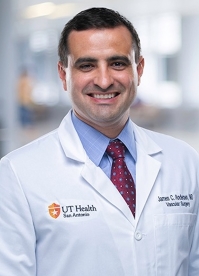Our cardiac electrophysiologists help patients who have problems with their heart’s electrical system, which creates electrical pulses to regulate the heartbeat. When these electrical currents don’t work properly, the heart may beat too quickly, too slowly or irregularly. These abnormal heart rhythms are called arrhythmias.
Types of Arrhythmias
There are different kinds of abnormal heart rhythms. Abnormal heart rhythms from the top chamber are called SVTs (supraventricular tachycardia).
These include:
- Inappropriate sinus tachycardia (IST)
- Junctional tachycardia
- Atrial tachycardia
- Atrial flutter
- Atrial fibrillation
- AVRT
Arrhythmias, or abnormalities, coming from the bottom chamber of the heart are called ventricular arrhythmias, which are life-threatening. These may be treated by an ablation or a defibrillator.
Diagnosing a Cardiac Arrhythmia
To evaluate the heart’s electrical system and diagnose a cardiac arrhythmia, your doctor may conduct electrophysiology studies to find where the abnormal heartbeat is occurring. The arrhythmia can sometimes be treated with a cardiac ablation.
Cardiac ablation is performed with radiofrequency energy. Heat energy is transported via catheter. Sometimes we cool the heart with cryoablation. In this process, the abnormal tissue or the circuit in the heart is damaged or burnt to restore the normal heart rhythm. These procedures are done under anesthesia but are usually outpatient procedures.


